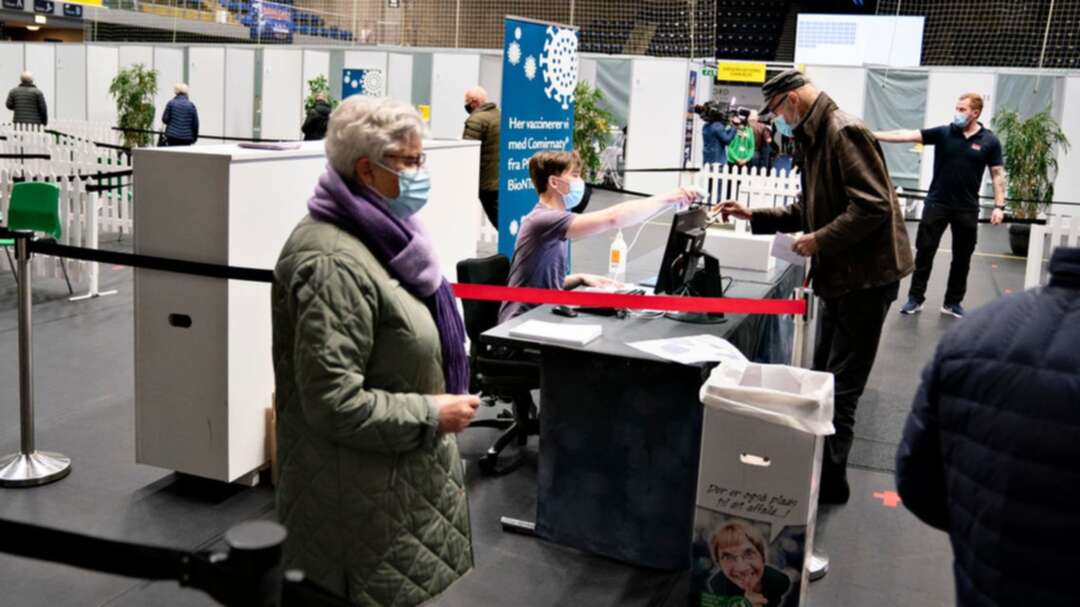-
The symptoms of the Indian Variant

Tim Wyatt
The continued spread of a new variant of the coronavirus that has appeared in India has upset the celebrations as most of the UK takes another step out of the lockdown on Monday.
Known to scientists as B.617.2, the Indian variant is responsible for clusters of cases in places like Bolton which has seen a serious spike in infections and hospitalisations.
Although experts are still studying how it differs from the strains of Covid already prevalent in the UK, it is believed to be significantly more transmissible than B.7, the form of coronavirus that is mainly already spread across the country.
According to Public Health England, cases of the Indian variant have more than doubled from 520 to 1,313 in only a week.
The number of people currently infected with B.617.2 will be even higher as this data from May 5th and not all infected have been tested.
Although the Indian variant of Covid is likely to spread faster than other strains, there is no evidence that it is more dangerous or that vaccines are not effective against it.
Similarly, the key symptoms associated with B.617.2 infection are the same as normal COVID-19:
A new, persistent cough
A high temperature
The loss of taste or smell
The spread of the Indian variant has not been seen as a sufficient threat to postpone the next step out of the May 17th lockdown, but there is growing speculation that the final stage currently slated for June 21st may need to be postponed.
While the vast majority of those vaccinated are protected from the fastest-spreading strain of coronavirus, if enough people refuse to take the injection when offered the most transmissble variant could still wreak havoc and feae.
Source: The independent
You May Also Like
Popular Posts
Caricature
BENEFIT Sponsors BuildHer...
- April 23, 2025
BENEFIT, the Kingdom’s innovator and leading company in Fintech and electronic financial transactions service, has sponsored the BuildHer CityHack 2025 Hackathon, a two-day event spearheaded by the College of Engineering and Technology at the Royal University for Women (RUW).
Aimed at secondary school students, the event brought together a distinguished group of academic professionals and technology experts to mentor and inspire young participants.
More than 100 high school students from across the Kingdom of Bahrain took part in the hackathon, which featured an intensive programme of training workshops and hands-on sessions. These activities were tailored to enhance participants’ critical thinking, collaborative problem-solving, and team-building capabilities, while also encouraging the development of practical and sustainable solutions to contemporary challenges using modern technological tools.
BENEFIT’s Chief Executive Mr. Abdulwahed AlJanahi, commented: “Our support for this educational hackathon reflects our long-term strategic vision to nurture the talents of emerging national youth and empower the next generation of accomplished female leaders in technology. By fostering creativity and innovation, we aim to contribute meaningfully to Bahrain’s comprehensive development goals and align with the aspirations outlined in the Kingdom’s Vision 2030—an ambition in which BENEFIT plays a central role.”
Professor Riyadh Yousif Hamzah, President of the Royal University for Women, commented: “This initiative reflects our commitment to advancing women in STEM fields. We're cultivating a generation of creative, solution-driven female leaders who will drive national development. Our partnership with BENEFIT exemplifies the powerful synergy between academia and private sector in supporting educational innovation.”
Hanan Abdulla Hasan, Senior Manager, PR & Communication at BENEFIT, said: “We are honoured to collaborate with RUW in supporting this remarkable technology-focused event. It highlights our commitment to social responsibility, and our ongoing efforts to enhance the digital and innovation capabilities of young Bahraini women and foster their ability to harness technological tools in the service of a smarter, more sustainable future.”
For his part, Dr. Humam ElAgha, Acting Dean of the College of Engineering and Technology at the University, said: “BuildHer CityHack 2025 embodies our hands-on approach to education. By tackling real-world problems through creative thinking and sustainable solutions, we're preparing women to thrive in the knowledge economy – a cornerstone of the University's vision.”
opinion
Report
ads
Newsletter
Subscribe to our mailing list to get the new updates!






















